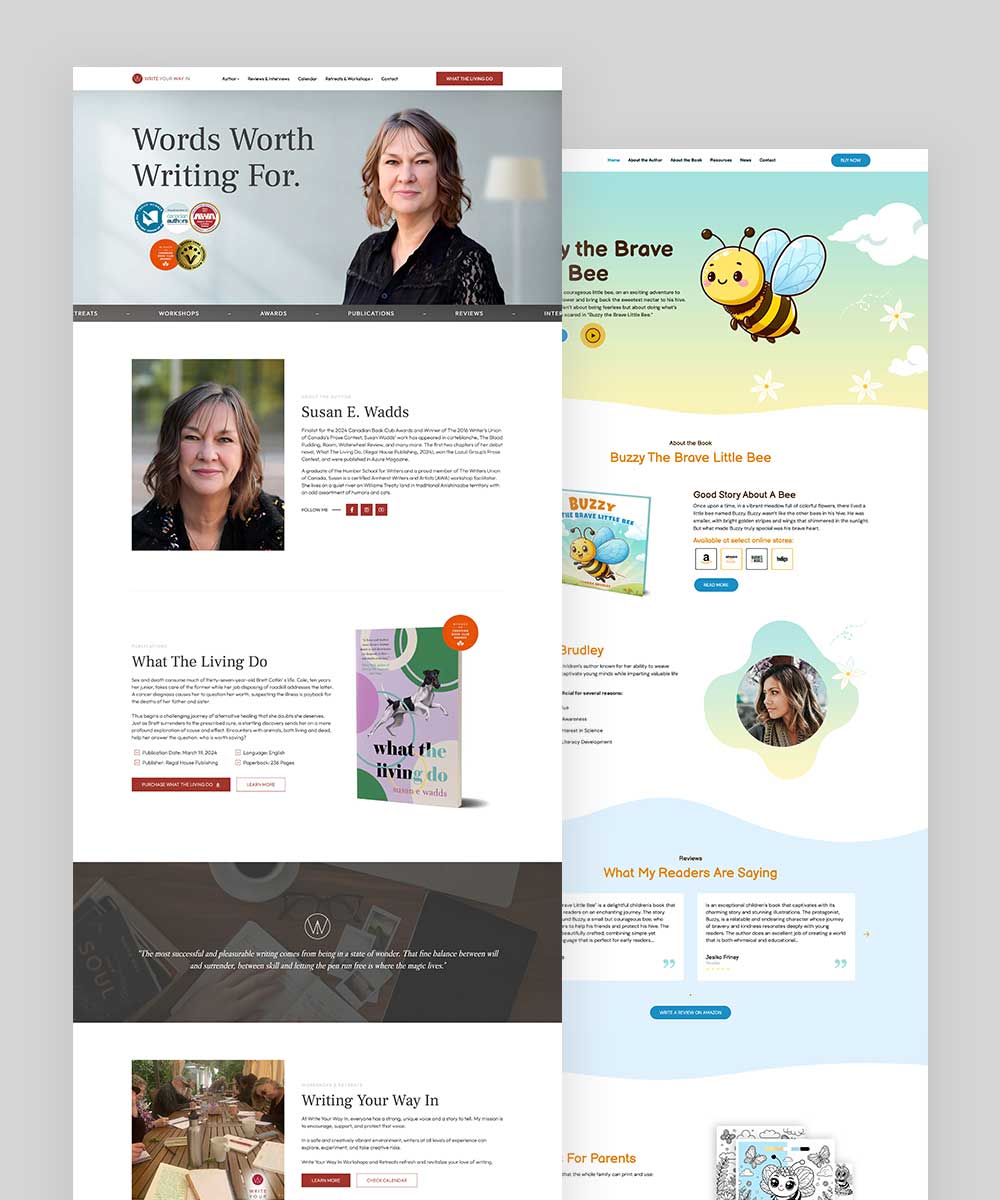There’s a quiet but undeniable truth about writing: it’s not just about the words on the page anymore. The days when authors could simply write a great book and hope it would magically find readers are long gone. Today, being an author means stepping out of the shadows, building a voice beyond your book, and connecting with your audience on a deeper level. And that, my friend, is where personal branding comes into play.
But what exactly does personal branding even mean for authors? It’s not about forcing yourself into a fake persona or becoming a marketing machine. It’s about shaping how readers perceive you—your story, your values, and even your quirks. It’s about standing out in a sea of endless new releases while staying authentic. Let’s break this down together.
Contents
- 1 Why Personal Branding Isn’t Optional Anymore
- 2 Start with You (Yes, the Real You)
- 3 Your Voice Is More Than Your Writing Style
- 4 Build Your Author Hub
- 5 Social Media: Friend or Frenemy?
- 6 Content That Connects
- 7 Networking Without Feeling Slimy
- 8 Reviews, Media, and Public Presence
- 9 When Personal Branding Feels Overwhelming
- 10 Keep It Real
- 11 Final Thoughts
Why Personal Branding Isn’t Optional Anymore
You know how some authors seem to have a “magnetic pull,” where you find yourself buying every book they release, even before reading the blurb? That’s personal branding in action. It’s that mix of trust and emotional connection that makes readers feel like they know you.
Think about it—if your name popped up alongside Stephen King or Colleen Hoover, would people instantly know what to expect from you? Would they feel something? Branding bridges that gap. It’s what transforms “just another book” into a book by you.
There’s also the cold reality of the market: competition is fierce. Thousands of books are published daily on platforms like Amazon. Without a distinct voice or recognizable style, your work risks blending into the background.
Start with You (Yes, the Real You)
Here’s the thing—branding isn’t about creating some shiny, polished version of yourself that feels like a corporate press release. Readers can smell fake a mile away. They want a real person with real stories. Maybe you’re a former barista who writes cozy mysteries with coffee shop settings. Or maybe you’re a fantasy author who grew up doodling dragons in your math notebooks. Those little details? They’re gold.
Your brand starts with asking some raw, honest questions:
-
What do I want my readers to feel when they think of me or my books?
-
What themes or values consistently show up in my writing?
-
What personal story or passion drives me to write?
Once you have answers, they’ll naturally shape your voice across social media, your author website, and even your newsletters.
Your Voice Is More Than Your Writing Style
A personal brand doesn’t just live in your books—it spills into everything you create. Your tweets, your Instagram captions, even the way you sign emails. Are you witty and playful? Warm and encouraging? Mysterious and thought-provoking?
Take Neil Gaiman, for example. His voice—gentle, wise, and a bit otherworldly—flows through not only his stories but also his blog posts and interviews. It’s consistent but never forced.
Try this: pick a tone that feels natural to you and use it everywhere. Don’t be afraid to show personality. Share behind-the-scenes chaos, like the time your cat walked across your keyboard and added 47 semicolons in Chapter 10. Readers love seeing the human side of authors.
Build Your Author Hub
Let’s get a little practical now. Your personal brand needs a home. An author website is non-negotiable—it’s like your online headquarters. Think of it as a mix of portfolio, bookstore, and coffee chat spot.
What should it include?
-
A simple, memorable bio that tells your story (not just a stiff list of accomplishments).
-
A clear way to find or buy your books.
-
A mailing list signup—this is gold for staying connected with readers.
-
A blog or news section where you can share updates, behind-the-scenes notes, or writing tips.
It doesn’t have to be fancy. A clean WordPress theme, some great visuals, and your unique voice can go a long way.
Social Media: Friend or Frenemy?
Ah, social media. It can feel like a blessing and a curse, can’t it? On one hand, it’s a fantastic way to connect with readers. On the other, it’s easy to get lost in endless scrolling or feel like you’re shouting into the void.
The trick is to choose platforms that fit your personality and audience. If you’re a visual storyteller, Instagram might be your thing. Love quick, snappy thoughts? Try X (formerly Twitter). TikTok’s #BookTok community has made unknown authors go viral overnight—though it requires energy and creativity.
But here’s a little secret: you don’t need to be everywhere. Consistency beats quantity. Show up where you enjoy being, and engage like a human, not a sales bot. Share your process, your inspirations, maybe even your struggles. A quick anecdote about writer’s block can spark more connection than another “buy my book” post.
Content That Connects
Think of your personal brand as a story. You’re not just selling books—you’re sharing experiences, lessons, and glimpses of your world. That’s why content matters.
Some ideas that work well for authors:
-
Snippets of your writing journey—both the highs and the messy bits.
-
Personal stories that tie back to your book’s themes.
-
Insights about your characters or world-building.
-
Playful extras like playlists, mood boards, or even recipes inspired by your story.
If you’re thinking, “But I’m not a marketer,” relax. This isn’t about hard-selling. It’s about inviting people into your creative space.
Networking Without Feeling Slimy
Networking gets a bad rap, but it doesn’t have to feel like schmoozing at a corporate mixer. As an author, your network could mean other writers, book bloggers, podcasters, or local bookstores. Collaborations—like interviews, guest blog posts, or joint giveaways—can expand your audience naturally.
A simple way to start? Engage with others in your genre. Leave thoughtful comments on their posts, recommend books you love, or join online writing communities. Authenticity matters here; no one likes the “Hi, read my book!” spammer.
Reviews, Media, and Public Presence
Let’s be honest, reviews are the lifeblood of book sales. But they also build your brand credibility. Encourage readers to leave honest feedback, and when they do, respond with gratitude.
Want to step things up? Pitch yourself for podcasts, book panels, or guest articles. Local media often loves featuring authors—especially if your book ties into something trending or cultural.
When Personal Branding Feels Overwhelming
There’s a real danger of burning out while trying to “be everywhere.” You’re a writer first—your books are your ultimate brand statement. It’s okay to take breaks from social media or delegate some tasks (like hiring a freelance designer for your site).
A quick tip: focus on one or two branding pillars at a time. Maybe this month you polish your website; next month you build your mailing list. Small, consistent steps win.
Keep It Real
Here’s what it boils down to: authenticity wins. You don’t have to be flashy, endlessly witty, or perfect. Readers are drawn to people who feel real—someone who shares their love for stories and isn’t afraid to show a few rough edges.
Remember, your personal brand isn’t a costume you wear. It’s the sum of your voice, your values, and how you show up for your readers.
Final Thoughts
Building a personal brand as an author isn’t a quick sprint. It’s a long, winding journey—one that grows alongside your writing career. Start where you are, lean into what makes you unique, and don’t be afraid to experiment.
You might be surprised by how much readers want to connect with you, not just your characters. And when they do, you’ll realize your brand is more than a strategy—it’s a relationship built on trust, creativity, and a shared love for stories.

